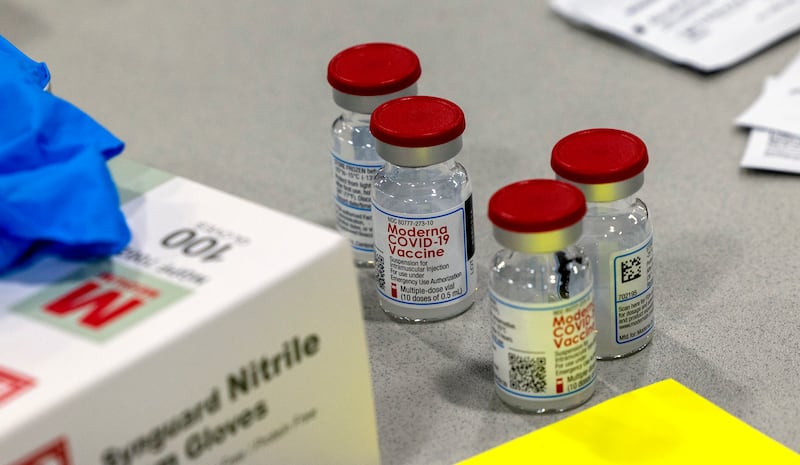A new study has raised concerns about how well the Moderna and Pfizer COVID-19 vaccines really work against the delta variant, worrying high-level officials.
Does Pfizer stop the delta variant? What about Moderna?
The study — which has been published on medrxiv and has not been peer-reviewed — found that Pfizer’s vaccine was 42% effective against infection in July, which was when the delta variant became dominant in the United States. Moderna’s vaccine was 76% effective in July.
- Those numbers came specifically from data in Minnesota. However, the study said there was similar data found among those in Florida.
Pfizer vs. Moderna in 2021 against delta variant
The study, which reviewed data from January to July, found that the Moderna vaccine, overall, was 86% effective against infection in that time period. Pfizer’s vaccine, meanwhile, was 76% effective against stopping infection.
- For hospitalizations, Moderna’s vaccine was 92% effective and Pfizer’s was 85% effective.
What the new Moderna, Pfizer data means
The new data has caught the attention of the Biden administration, according to Axios.
- “If that’s not a wakeup call, I don’t know what is,” one senior Biden official told Axios.
Cornell virologist John Moore told Axios that there should be caution before reaching conclusions about the data.
- “This is the kind of surprising finding that needs confirmation before we should accept its validity,” Moore told Axios.
More research on infections
This study primarily deals with infections with little data about hospitalizations and death. So far, data from the Centers for Disease Control and Prevention has found that 99.999% of people who were fully vaccinated against COVID-19 — specifically through two shots of Moderna or Pfizer — did not have a severe breakthrough case that led to hospitalization or death, CNN reports.
- In most cases, those severe breakthrough cases have been among those 65 years old and older, as I explained for the Deseret News.


